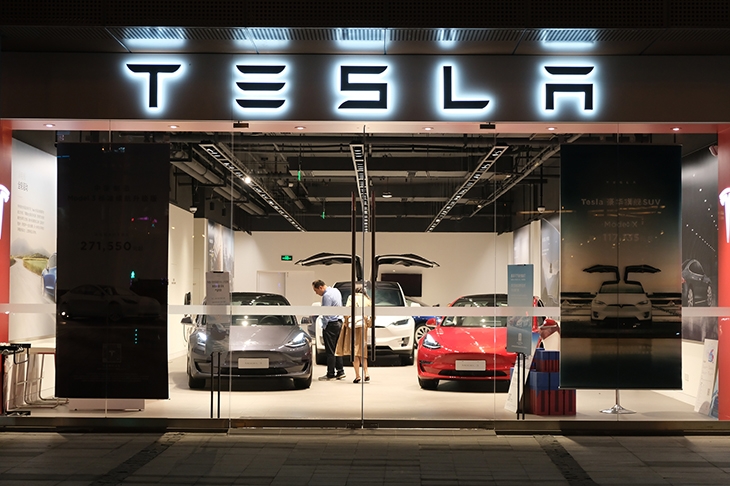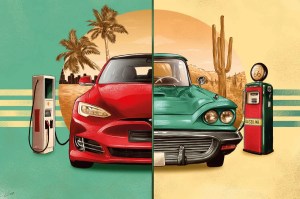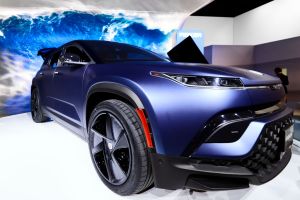I loved the Ford Mustang Mach-E which I had on loan for four days. It was gorgeous to drive — and slightly saner than the Tesla Model 3, in that some of the controls involve physical switches and buttons, rather than an on-screen interface. The only annoyance was a persistent whining noise. This came from my teenage daughter who endlessly delivered her strongly held opinion that a fat, 55-year-old advertising man shouldn’t be driving a Mustang. As I patiently explained, when you are a 55-year-old man, you don’t really buy a car for yourself, you buy it for your Jungian shadow-self. So whereas your real-life wife and children might not much like riding in a Mustang, your imaginary 26-year-old Colombian girlfriend thinks it’s fabulous. This indeed was the very insight that gave rise to the Mustang in the first place.
Ironically, a few US car purists have attacked Ford for attaching the Mustang name to an electric car as a ‘marketing exercise’, when of course its whole existence was a marketing exercise, much of it inspired by an extraordinary Ukrainian-American psychologist called Louis B. Cheskin — the man who made margarine yellow (it used to be white), designed the Marlboro pack and created Ronald McDonald. Cheskin had earned the respect of Ford executives when he predicted the failure of the Ford Edsel; with another motivational psychologist, Ernest Dichter, he believed the Edsel’s radiator grill resembled female genitalia, and so might symbolize castration. Freudians may have given us appalling psychology but they did give us better-looking cars.
The Mach-E body shape divides people, but I’m fine with that. Left to me, cars would still have fins and white-wall tires. Cars look far more boringly similar today than 50 years ago. (This aesthetic regression to the mean is doubly true of yachts, which look better the further back in time you go. On which note, if anyone has £1.4 million to spare, Norman Wisdom’s 1966 yacht Conquest is for sale at iyc.com/yachts/conquest-of-1966 — a rare instance of something for super-rich people being both tasteful and too cheap.)
There’s one significant accessory missing from the Mustang Mach-E — which also applies to other Tesla competitors such as the Polestar, the Ioniq 5, the Volkswagen ID.4 and the Jaguar iPace. Each should come with a pack of preprinted cards to hand out to everyone you meet explaining why you didn’t buy a Tesla, because that’s what everyone is going to ask you. Here’s how my cards will begin.
1. Silicon Valley monoculture scares me a bit. When you bought a car from Detroit, you were indirectly funding Bill Haley, Aretha Franklin, Marvin Gaye, Smokey Robinson, the Supremes, Stevie Wonder, Gladys Knight, Alice Cooper, Martha and the Vandellas, Holland-Dozier-Holland, Berry Gordy, Kid Rock, Madonna and Eminem. By contrast, Silicon Valley must be the richest place in the history of the planet to have produced nothing of any ancillary cultural interest. The trouble with the nerd economy is it employs only nerds.
2. I mildly object to using my personal transportation budget to fund someone who promotes driverless vehicles but supports manned space travel. You may not know this, but astronomers hate manned space flight, since it’s a very expensive way of finding out very little. Elon Musk and Jeff Bezos both believe that cars and vans should drift around empty, depriving millions of skilled drivers of their livelihood, while for some reason space rockets — tailor-made for computerized telemetry and remote operation — become vastly more useful if there are three billionaires on board possessed of no notable aeronautical experience. This makes no sense.
If any category needs more diversity and competition, it’s this one.
This article was originally published in The Spectator’s UK magazine. Subscribe to the World edition here.


















